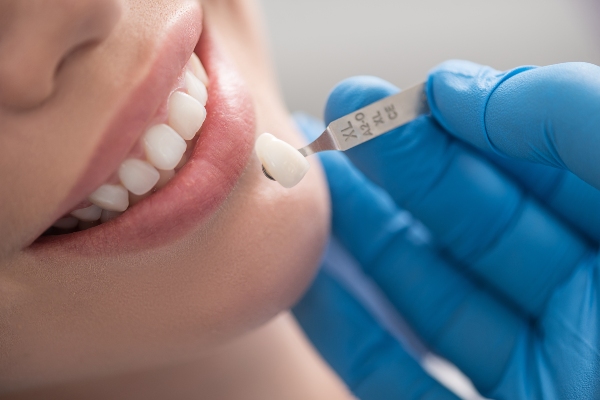 Preventative dental care is essential for your oral health. If you have never been to the dentist, it can be hard to know what to do. Let's go over some of the best practices for diet and nutrition that you need to keep your teeth healthy and strong, so that not only are they easier on your mouth, they'll also last longer.
Preventative dental care is essential for your oral health. If you have never been to the dentist, it can be hard to know what to do. Let's go over some of the best practices for diet and nutrition that you need to keep your teeth healthy and strong, so that not only are they easier on your mouth, they'll also last longer.
Eat a balanced diet
Eating the right food will help keep plaque from building up on your teeth, leading to cavities or worse problems. Ensure you're eating enough vegetables, fruits, grains, meat, and dairy products to get all the nutrients your body needs without any extra sugars or artificial ingredients. Avoid drinking lots of sugary drinks like soda since this will only increase the amount of plaque buildup on your teeth (and make them more sensitive to heat and cold).
Brush and floss every day
Dental care at home is a crucial part of preventative dental care. Brush your teeth twice a day and floss once a day to ensure you're getting rid of all the plaque on your teeth that builds up throughout the day. Brushing can't get in between all of your teeth but flossing goes through the areas where the toothbrush isn't able to reach. Flossing can also get rid of bad breath or even food particles stuck between your teeth, leading to more damage if they aren't removed.
Drink plenty of water
Water is good for your body and teeth, so drink up! Make sure you're drinking at least six to eight glasses of water every day, if not more. This will help keep plaque away from the surface of your enamel while also keeping it moisturized, which makes it less likely that damage or decay can get in between them. Also, water is excellent for your gums and can help keep them healthy.
Limit sugar intake
Sugar isn't good for your teeth because it feeds the bacteria in your mouth, leading to tooth decay. That means that if you're eating a lot of sugary foods and drinking lots of soda, try hard to limit how much sugar intake you have each day since this will only help keep your teeth healthy.
Eat more vegetables and fruits
Vegetables and fruits are great for your teeth since they help scrape away any plaque built upon each tooth's surface. Eating vegetables or fruit helps remove some acidity in your mouth, which keeps your enamel strong throughout the day while also keeping off other bacteria buildups to avoid tooth decay.
Regularly visit a dentist
While you can do some preventative dental care at home, it's essential to see a dentist several times a year so they can diagnose problems before they get worse. If you have damage to your teeth, fillings, or even missing pieces, the dentist will be able to fix it so that you won't need major dental work later.
Dental care is vital for your oral health. Make sure you eat a balanced diet and brush and floss every day while limiting sugar intake to avoid tooth decay. Also, drink plenty of water throughout the day to keep plaque from building up on your teeth, leading to cavities or worse problems over time.
By following the tips in this article, you can keep your teeth healthy and strong so that they last longer.
Dentists offer more tips on diet and nutrition
While this article reviewed the general topics one might consider when reviewing the effects of one's diet on oral health, it is still best to speak to a dentist for more detail. A dental practitioner can discuss the effects of various medical conditions, such as diabetes, that could account for an alternative diet than was discussed in this blog.
Request an appointment or call Oro Valley Family Dentistry at 520-833-5261 for an appointment in our Tucson office.
Related Posts
Looking for information on preventive dentistry? Read on to learn more. A good preventive dentist can save you money on significant tooth problems, pain, and costly treatments in the future. All treatments or procedures that prevent tooth decay, tooth damage, and gum disease fall under preventive dentistry. Fortunately, when preventive dentistry is incorporated into daily…
Fluoride treatments are very important in preventative dental care. Every patient wants their dentist to provide them with all the necessary tools to keep their smile bright and white. You go to the dentist twice a year as recommended and brush and floss your teeth regularly.Doing your part in your oral care routine only goes…
Preventative dental care is an important necessity when it comes to taking care of your teeth and gums. Your dentist is your primary defense in dental health. Early detection and treatment of any oral issue are vital in keeping your original teeth looking healthy and staying strong the longest.Be sure to schedule a dental checkup…


